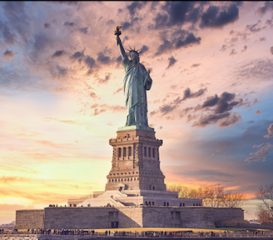
THE LIBERTARIAN OUTLOOK: WHAT IS IT REALLY?
Many who favor laws that prevent communities or counties from governing themselves and their enterprises as they see fit call themselves “Libertarian.” The word has a nice ring, doesn’t it? But most who use it have not considered the fact that it has three radically different meanings. As a result, it’s all too easy to slide back and forth among them as if they’re all the same thing. The three are:
Individual Libertarian. This means that every person is free to do as they wish as long as they’re breaking laws against physically injuring people or property –or not “shouting ‘fire’ in a crowded theater. In a true individual libertarian regime a person can drink booze, smoke weed, fuck anybody who is willing, have total control over their own bodies and reproduction or non-reproduction, or earn their living as a sex worker. Reasonable regulation includes such items as limiting the right to drive after drinking alcohol, and requiring sex workers to have a weekly physical exam to make sure they’re not passing on diseases.
Some apologists for corporate brutality, intimidation, deception, or other misdeeds claim that really they’re doing good because philosophically they’re “libertarians.” Confusing such a viewpoint with an individual libertarian one is like a shell game in which everyone is tricked into thinking the bean is under a different shell than it really is. An individual libertarian philosophy holds that government has no business telling us how to live our lives as long as we don’t harm others people or living beings. For example, “Mr. Conservative” Barry Goldwater was a very strong advocate of women’s control over their own bodies and reproductive choices. That’s an individual libertarian position.
But a Big Business Libertarian outlook is different. It holds that a corporation or other business can or ought to be able to do as it pleases with no oversight or regulation by the community, the city, the state, or anybody else. How strange, since many who hold that view also lobby constantly for government contracts, subsidies, tax incentives, land grants, and anti-labor and union-busting laws. Many actively seek government regulations that will give them a competitive advantage or wedge of entry into some market. An attorney friend of mine who works with vampire corporations and the ultra-rich says, “Their lobbyists are like a plague of locusts. No matter how many subsidies, tax breaks, and concessions they get, every day they’re over at the state capital asking for more –and more—and more.”
The big business libertarian view holds that Wall Street, the big banks, other global corporations, and “the invisible hand of the market” will look out for ordinary people’s interests. Really?
The grain of truth in a business libertarian view (not just big business) that is that even small mom and pop businesses are too often hobbled by an excess of rules, regulations and forms to fill out that don’t help anybody anywhere. The longer a government or business exists, the more of these there tend to be. It’s useful to have periodic reviews to scrap those no longer needed, clean up the rest, and make sure they are all written in language anyone can understand.
Realistic freedom for businesses includes freedom from intimidation by other businesses as well as from unneeded busybody government interference. That’s where preventing monopolies and ensuring competition comes in. And a socially conscious business libertarian view ensures competitive bidding and no sweetheart deals like those that are so common in matters like weapons system procurement. History tells us that this is likely occur only when there is an outside overseer who enforces it.
A third variation is a Plutocratic Libertarian view. This is valuing liberty for the wealthy and powerful above all, clearing the way for them to do anything they please regardless of how greatly it impoverishes or injures others or nature’s other beings. A plutocratic libertarian system tends to give lip service to the idea that everybody is equally free, while it actually enacts all kinds of restrictions on those who happen to be poor and powerless. Such as, for instance, laws against “loitering.”
Today’s hard-right ideologues who call themselves libertarians tend to be of the second and third kinds. Very few are genuine individual libertarians. Why does this matter? Because if a corporate giant and an individual are both free to do as they please, the former usually has the resources to crush any individuals who get in the way—often using government as its tool.
The ideology that underlies big business and plutocratic perspectives is the idea that everybody will make the “best” possible decisions for themselves that they can, and that will result in the best collective outcomes. That’s true — IF the only thing we care about is making AMMAP (As Much Money As Possible) and care little or not at all about any other ethics or values. Or about who benefits much, who just a little, and who gets royally screwed..
Consider this: Most economists have pretty good jobs and make enough to live fairly well. Their personal experience has a major effect on their theories. Such as making big decisions about whether to use their available funds for a new Lincoln or a new Lexus. Then we can look at someone who is clinging to survival by the fingernails. An economist is likely to watch with detached interest as to whether that person will use his or her very limited funds for healthy organic non-GMO food instead of cheap food grown with heavy use of herbicides and pesticides, or instead goes to a dentist to get decaying teeth made bad by cheap food filled or pulled. That’s the kind of “freedom of choice” that billions of people in the world face.
Or step back and look at the international scene. Todays so-called “free markets” are, in large part, arrangements agreed on by attorneys for big business (often that’s the case even when they are negotiators serving at the behest of government) that are really not free at all. A large share of international finance and commerce, for example, is tightly regulated by global and regional bodies like the World Trade Organization. As a result, “free trade” is often trade governed by rules devised by giant multinational corporations. The corporations don’t want countries, states, or communities making any rules that interfere with their ability to do whatever they please, however harmful to people, other living beings, and ecosystems it might be. And they ask legislatures to pass laws that keep countries, states, or communities from passing regulations that stop Vampire Capitalist corporation from bleeding them dry. The only “freedom” they want is for themselves. They certainly don’t want others to see and hear their negotiations with each other, since those are almost always carried on behind closed doors with no representatives of the press of the public present. Whose liberty is that?
END
© 2021 by Victor Daniels. You may distribute this wherever and however you wish so long as it’s free. Any use in a manner that directly or indirectly earns compensation requires consent of the author.

